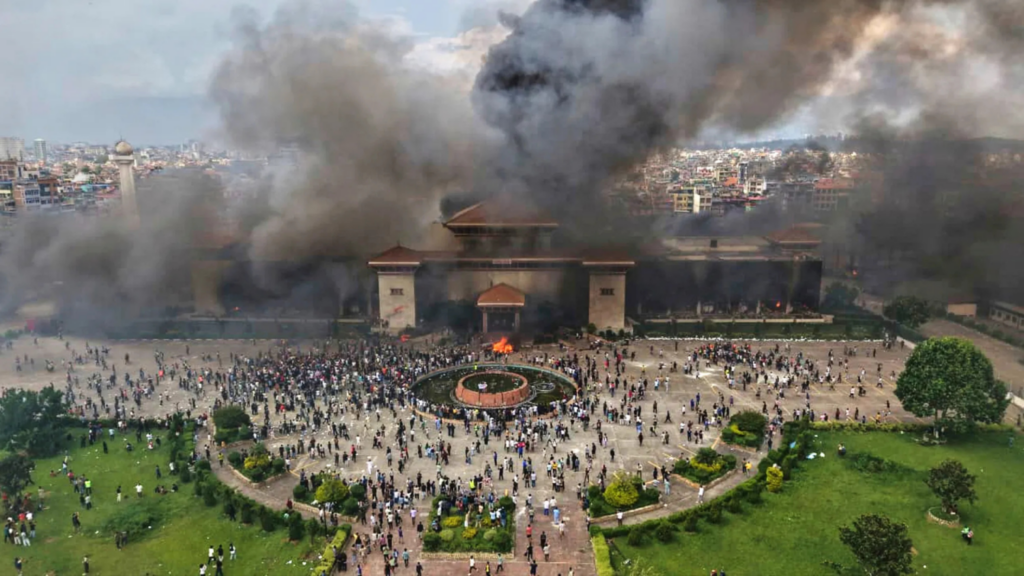A New Global Security Architecture: Disbanding NATO, Uniting Europe, and Reshaping Global Alliances
For more than seventy years, NATO has been the primary guarantor of Western security, born in the early years of the Cold War to deter Soviet expansion. While it served its purpose during that era, the world has changed dramatically since 1949. The Soviet Union no longer exists, the European Union has emerged as a political and economic power in its own right, and global security challenges have shifted. Yet NATO remains, increasingly seen by Moscow as a hostile military alliance encroaching on its borders, and by some Europeans as a structure that prevents the continent from developing an independent defence posture.
A viable and forward-looking solution would be the deliberate and negotiated dissolution of NATO, replaced by a unified European Defence Force, in exchange for Russia’s complete withdrawal from Georgia, Moldova, and Ukraine. Such an arrangement would address Moscow’s long-standing demand for security guarantees while allowing Europe to take full responsibility for its own defence. It would also enable the United States to end its costly security commitments on the continent and open a path to transforming Russia from an adversary into a partner.
The dismantling of NATO would remove what Russia has repeatedly called its core strategic concern: the presence of a Western military bloc along its western frontier. In return, Moscow would agree to verifiable guarantees of respect for its neighbours’ sovereignty and territorial integrity, including the withdrawal of its forces and proxies from contested territories. This would end years of frozen conflicts and restore internationally recognised borders, bringing relief to countries that have lived under the shadow of military pressure. The removal of NATO from the equation would deprive hardliners in Russia of a powerful rallying cry and allow for a genuine reset in relations with Europe.
Replacing NATO with the European Defence Force would ensure that the continent is not left exposed. The EDF would integrate the armed forces of participating European states into a single structure with unified command, streamlined logistics, coordinated procurement, and shared intelligence capabilities. This integration would make Europe more agile and capable of responding to emerging threats without depending on Washington’s political or military leadership. For the first time in modern history, Europe could speak and act with one voice on defence matters, while making it clear that the new force is defensive in nature and not designed to threaten Russia.
For the United States, such a realignment would bring substantial advantages. Closing its bases across Europe would free billions of dollars in annual defense spending, resources that could be redirected toward infrastructure, technology development, and pressing domestic needs. America’s global military posture could be refocused on regions where its presence is strategically vital, such as the Indo-Pacific, without the burden of maintaining a Cold War-era footprint in Europe. Furthermore, by ending a major source of U.S.-Russia hostility, Washington would have an opening to encourage closer economic and political ties between Moscow and the European Union. This would in turn weaken the deepening Russia-China strategic partnership, which currently represents one of the most significant challenges to U.S. influence.
The economic benefits of this arrangement would extend across all parties. Europe’s defence industries would gain from the large-scale procurement and joint research programs required to equip the EDF, fostering innovation and creating jobs. The United States would enjoy greater fiscal flexibility and the ability to prioritise domestic economic competitiveness. Russia, if it fulfilled its obligations, could see sanctions lifted gradually, opening new trade channels with Europe and enabling investment in sectors beyond energy. Even energy cooperation could be reshaped into a stable and mutually beneficial framework, avoiding the politicised disputes of recent years.
Naturally, there are risks. Some will argue that dismantling NATO could embolden Moscow or undermine Western cohesion. Yet these concerns can be addressed through binding treaties, robust verification mechanisms, and a phased approach that links every step of NATO’s dissolution to Russia’s fulfilment of its commitments. European readiness under the EDF must be maintained at a level that leaves no doubt about the continent’s ability to defend itself. Trust will not come overnight, but a carefully sequenced process could build confidence over time.
What this proposal offers is a genuine strategic reset for the twenty-first century. The security framework created to deter the Soviet Union no longer matches today’s realities, yet it continues to shape and often distort relations between Russia and the West. By replacing NATO with a European-led defence force, the West can remove a central cause of tension, resolve territorial disputes that have poisoned relations for decades, and create the conditions for a cooperative Eurasian economic space. For Washington, it is a chance to reduce overstretch and ensure that Russia becomes a European partner rather than a permanent adversary aligned with Beijing. For Europe, it is the moment to step into full strategic maturity. For Russia, it is an opportunity to gain lasting security and to be welcomed as a legitimate participant in the European order.
This is not a call for appeasement, but for a calculated and reciprocal exchange that addresses the core interests of all sides. It demands courage from leaders in Washington, Brussels, and Moscow, a willingness to challenge entrenched narratives, and the vision to see beyond short-term political costs. The alternative — more decades of suspicion, arms races, and proxy wars — is far more expensive in both human and economic terms. If the goal is lasting peace and stability in Europe, disbanding NATO in exchange for Russian withdrawal and European unity offers a clear and attainable path forward.



